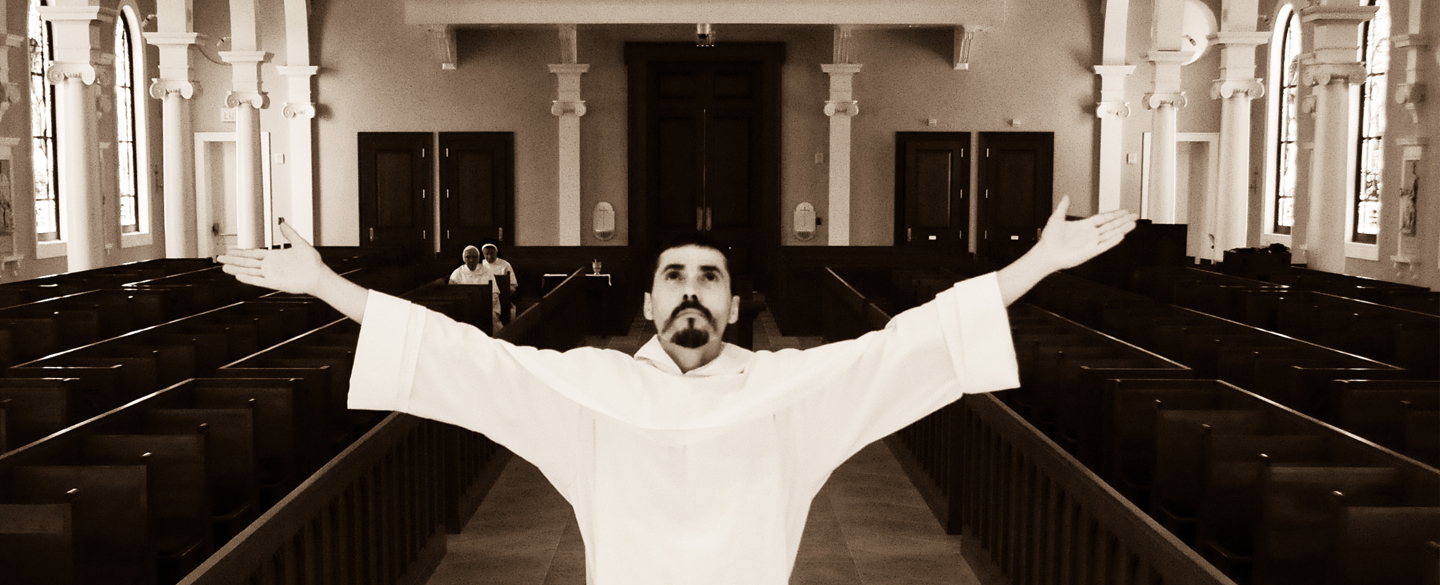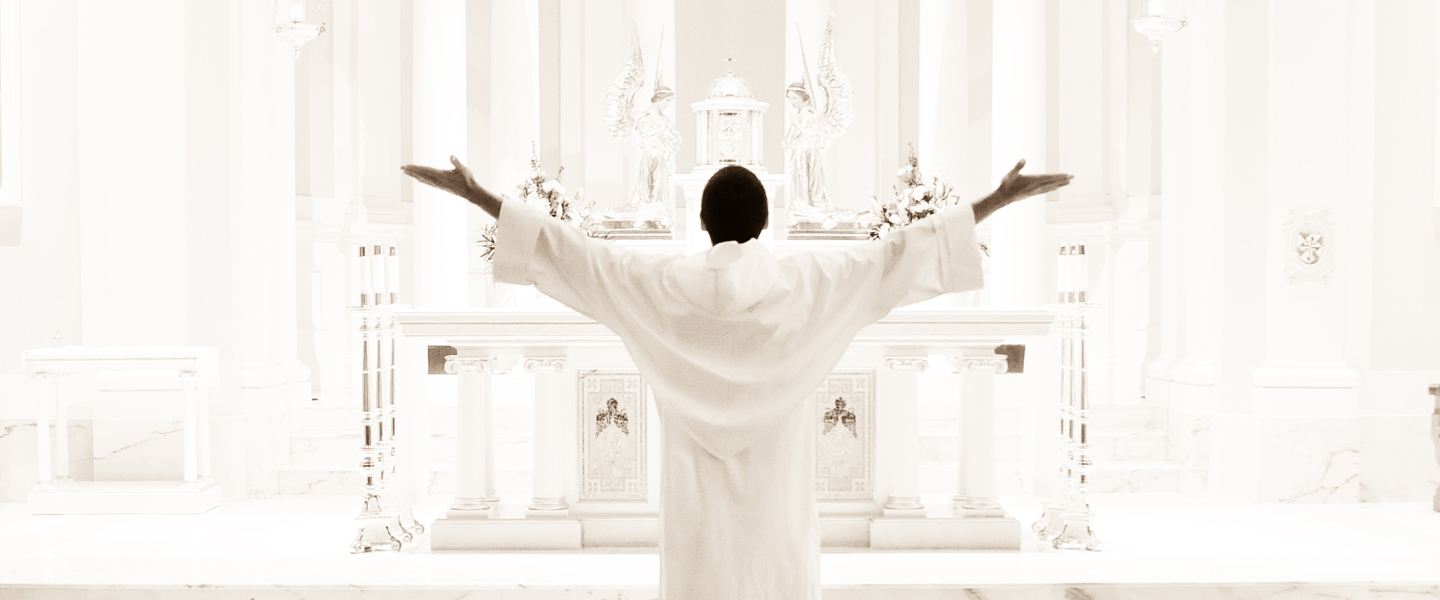
Our holy father Dominic was also seen praying with his hands and arms spread out like a cross, stretching himself to the limit and standing as upright as he possibly could.

Sometimes, as I was told personally by someone who had seen it, our holy father Dominic was also seen praying with his hands and arms spread out like a cross, stretching himself to the limit and standing as upright as he possibly could. This was how he prayed when God restored the boy Napoleon to life at his prayer at San Sisto in Rome, both in the sacristy and in the church during the Mass in which he rose from the ground, as we were told by that devout and holy sister, Cecilia, who was present with a great crowd of others and saw it all. Like Elijah when he raised the widow’s son, he stretched himself out over the boy’s body (1 Kings 17:21).
He also prayed in the same way when he rescued the English pilgrims near Toulouse, when they were nearly drowned in the river (cf. 97).
This was how the Lord prayed when he hung on the cross, his hands and arms stretched out, when, with great cries and weeping, his prayer was heard because of his reverence (Heb. 5:7).
The holy man of God, Dominic, did not use this kind of prayer regularly, but only when, by God’s inspiration, he knew that some great wonder was going to occur by virtue of his prayer. He neither forbade the brethren to pray like this nor did he encourage it. When he raised the boy from the dead, praying standing with his arms and hands stretched out like a cross, we do not know what he said. Perhaps he used the words of Elijah, ‘Lord my God, I beseech you, let the soul of this boy return within him’ (1 Kings 17:21), just as he followed his manner of praying. But the brethren and the sisters and the cardinals and the rest who were there were paying attention to his manner of praying, which was unfamiliar and remarkable to them, and so they did not take in the words he spoke. And afterwards they could not ask the holy and extraordinary man, Dominic, about it, because in this deed he had shown himself to be an object of awe and reverence to them all.
However he did sometimes recite seriously, deliberately and carefully, the texts from the Psalms which refer to this manner of praying, such as Psalm 87:10. ‘I cried to you, Lord, all day long I have stretched out my hands to you’ with the rest of that psalm, and Psalm 142:6-7, ‘I have stretched out my hands to you, my soul is like soil without water before you, speedily hear me, Lord.’
This makes it possible for anyone who prays devoutly to understand the teaching of this father, praying this way when he desired to be extraordinarily moved towards God, or rather, when he felt himself being moved by God in a particularly expansive way, through some hidden inspiration, in view of some special grace for himself or for somebody else, on the basis of David’s doctrine, Elijah’s symbolism, Christ’s love and Dominic’s devotion.


 Back
Back